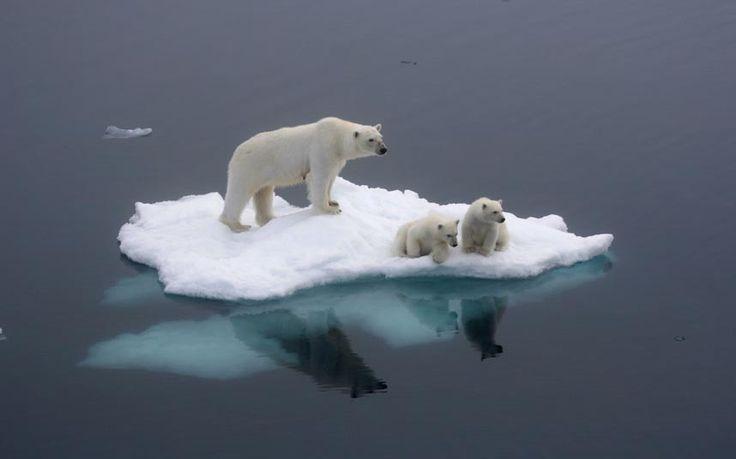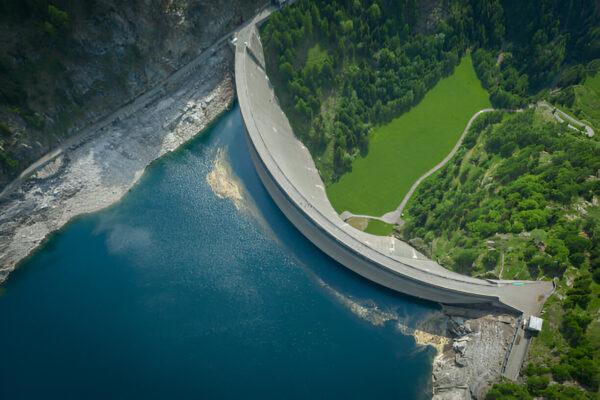Climate change is an undeniable reality that continues to pose significant challenges to both the environment and global economies. While some effects of climate change are visible, such as rising temperatures, extreme weather events, and melting ice caps, many of its consequences remain unseen yet profoundly impactful.
The economic implications of climate change are staggering, with billions of dollars in damages incurred annually due to natural disasters, supply chain disruptions, and resource scarcity. This article explores the multifaceted impact of climate change, while highlighting the importance of sustainable business practices in mitigating its effects.

Read another articles : How Business Contribute to SDG 13: Climate Action
Table of Contents
ToggleRising Global Temperatures
Global temperatures have increased by approximately 1.1°C since the pre-industrial era. According to the Intergovernmental Panel on Climate Change (IPCC), this trend is expected to continue, with temperatures projected to rise between 2°C and 4°C by the end of the century if immediate action is not taken.
The frequency and intensity of extreme weather events, including hurricanes, droughts, and wildfires, have also increased, leading to significant economic and environmental consequences. In 2021 alone, climate-related disasters caused an estimated $329 billion in economic losses worldwide, as reported by Swiss Re Institute. Such financial burdens highlight the urgent need for businesses and governments to invest in climate resilience and adaptation measures to mitigate future risks.
Global Business Operations
Industries highly dependent on natural resources, such as agriculture, fisheries, and forestry, are particularly vulnerable. For example, the coffee industry faces significant challenges due to changing climate conditions, as regions traditionally suitable for coffee cultivation are becoming less viable.
Additionally, transportation and logistics sectors are experiencing increased costs due to rising fuel prices and infrastructure damages caused by extreme weather events. Such challenges push industries to rethink their operational strategies and dependency on vulnerable resources. Some companies are shifting towards diversification, seeking new geographic regions or alternative materials to reduce their exposure to environmental risks.
Financial Impact of Climate Change
Climate change presents both risks and opportunities for the financial sector. For example, the insurance companies are facing higher payouts due to natural disasters, while investors are increasingly considering climate risks in their portfolios.
According to the Global Sustainable Investment Alliance, sustainable investments reached $35.3 trillion in 2020, representing a 15% increase from 2018. This shift indicates a growing recognition of the need for climate-conscious investment strategies. Businesses that adopt sustainable practices and integrate climate risk assessments into their strategies are better positioned to thrive in a rapidly changing world. Companies such as Tesla, Unilever, and Microsoft have invested heavily in sustainability initiatives, from renewable energy adoption to carbon-neutral operations.
Governmental Challenges
While climate change is impacting the business and environment massively, it is also becoming a challenge for government and related stakeholders. Governments play a critical role in combating climate change through policy implementation and corporate responsibility initiatives.
For instance, The European Union’s Green Deal, which aims to achieve carbon neutrality by 2050, has set a precedent for other nations to follow. Carbon pricing, emissions trading systems, and green bonds are emerging as effective tools for incentivizing businesses to reduce their carbon footprint.
Everyone’s Responsibility
After all, climate change is not just an environmental issue; it is an economic and business challenge that requires immediate and sustained action. To tackle the issue of climate change, everyone should have the awareness of making the earth a better place to live.
By recognizing the unseen yet real challenges posed by climate change, stakeholders can work together to build a more sustainable and resilient future. Investing in climate resilience, transitioning to clean energy, and adopting responsible business practices are essential steps toward mitigating the effects of climate change. While people, in general, can reduce the use of high emitted transportation, choose the green-products, or even conduct the digital campaign.
For business, in relation to the environmental initiatives, now we have Satuplatform as all-in-one solution who provides you with carbon consultancy. Try our FREE DEMO now!
Similar Article
Memahami Dampak Jejak Karbon Tersembunyi di Balik Jejak Air
Dalam upaya menerapkan strategi keberlanjutan, jejak karbon dan jejak air (water footprint) merupakan dua metrik penting untuk mengukur dampak ekologis.…
Good Agricultural Practices (GAP): Fondasi Pertanian Modern yang Aman dan Berkelanjutan
Isu terkait ketahanan pangan kian menyita perhatian masyarakat global. Konsumen makin memperhatikan kualitas dan keamanan produk pertanian hingga praktik bertani…
Low GHG Emission, High Impact: Everyday Materials That Could Reshape Green Manufacturing
The shift toward sustainable production practices has spurred growing interest in low-carbon materials that support greener industrial processes. Emerging materials,…
Does “Eco-friendly” Labels Mean Green Product in Green Industry?
Businesses and consumers alike are navigating a flood of products claiming to be “eco-friendly” or “green.” These labels, often used…
Dilema Biomassa: Transisi Energi Berkelanjutan atau Perusakan Lingkungan?
Dalam upaya mencapai target net-zero emission pada 2060, Indonesia mendorong transisi energi dari bahan bakar fosil ke sumber energi terbarukan.…
Energi Terbarukan di Indonesia: Mengapa Surya dan Hidro Menjadi Pilihan Utama?
Sebagai negara kepulauan terbesar di dunia, Indonesia menghadapi tantangan besar dalam memenuhi kebutuhan energinya. Di tengah komitmen untuk mencapai net…





